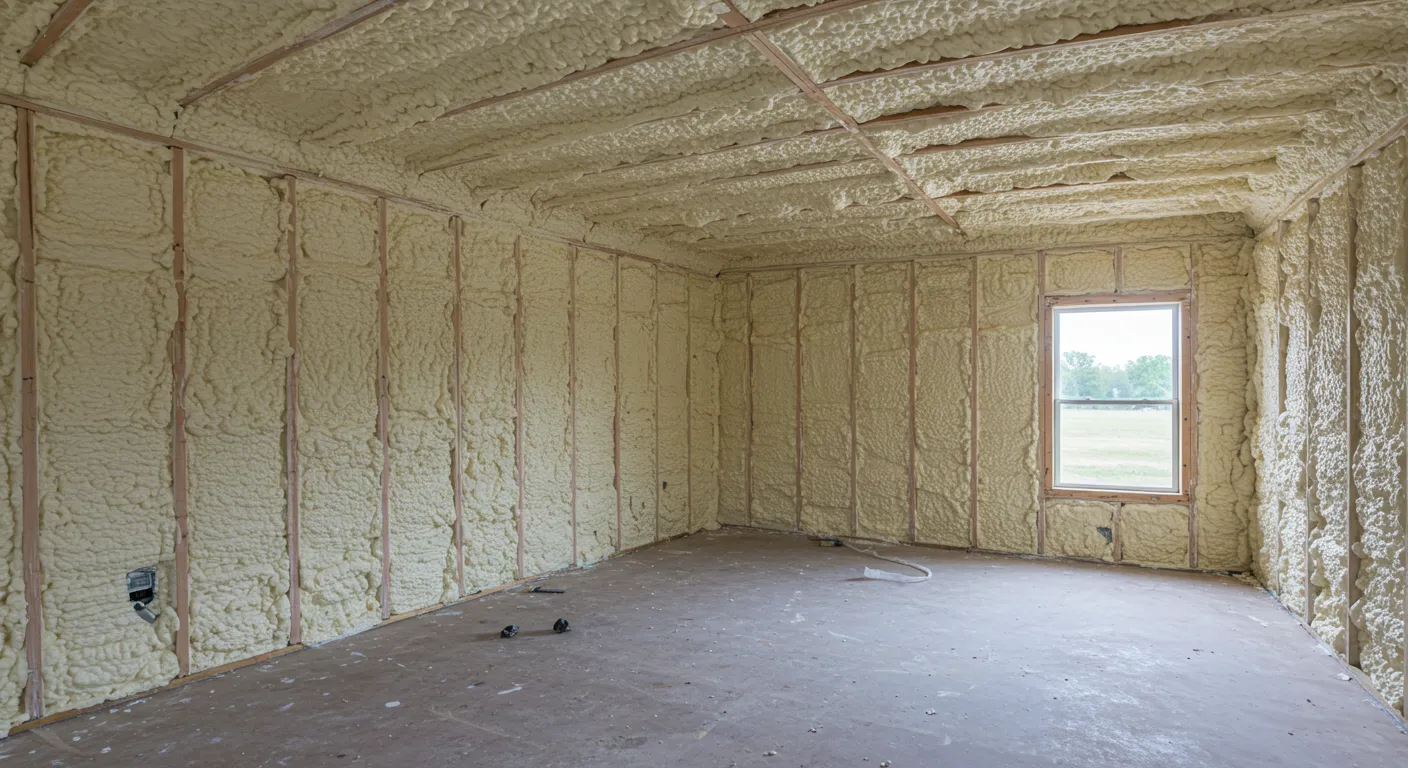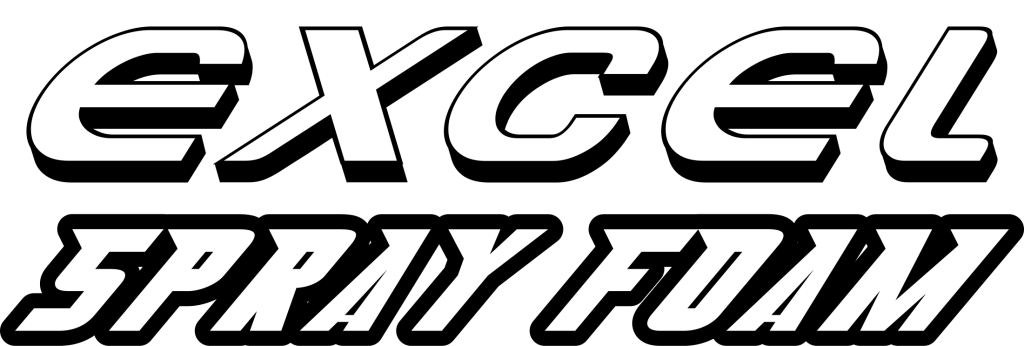Spray foam insulation has gained popularity due to its superior energy efficiency, air-sealing capabilities, and durability. However, many homeowners and property investors encounter resistance from banks when seeking financing, refinancing, or home equity loans for properties insulated with spray foam. This article explores the reasons behind this hesitance, diving into the concerns financial institutions have regarding spray foam insulation and its impact on property valuation and marketability.
Understanding Spray Foam Insulation
Spray foam insulation is a polyurethane-based insulating material that expands upon application to fill gaps, providing excellent thermal resistance and air sealing. It is commonly used in attics, walls, crawl spaces, and roofs. Despite its benefits, banks often classify properties with spray foam insulation as high-risk assets due to several factors.
Core Concerns of Banks Regarding Spray Foam Insulation
Difficulties in Property Valuation
- Appraisers struggle to assess the impact of spray foam insulation on home value due to limited comparable sales data.
- Many financial institutions rely on traditional insulation benchmarks, making spray foam insulation an outlier in their valuation models.
Potential Structural Issues
- Spray foam, when improperly installed, can trap moisture, leading to mold growth and structural deterioration.
- Some applications create difficulties in inspecting key structural components, such as roof timbers and joists, raising concerns about hidden defects.
Challenges in Mortgage Approvals
- Many lenders are hesitant to finance properties with spray foam insulation due to perceived risks.
- Some lenders require additional surveys or certifications to confirm that the insulation does not compromise the structure.
Difficulties in Property Sales
- Potential buyers may be discouraged by financing challenges, reducing the property’s market appeal.
- Homeowners may struggle to provide sufficient documentation to satisfy lenders and buyers.
Health and Safety Concerns
- If not properly installed, spray foam insulation can emit volatile organic compounds (VOCs) that may affect indoor air quality.
- Some homeowners report persistent odors due to incorrect mixing or application of spray foam.
Impact on Homeowners and Property Investors
Higher Insurance Premiums
- Some insurers classify spray foam insulation as a fire risk due to its chemical composition.
- Difficulty in verifying proper installation increases liability for insurance companies.
Complicated Refinancing and Equity Loans
- Homeowners seeking to refinance may face higher scrutiny, requiring additional surveys and documentation.
- Banks may devalue properties with spray foam, reducing loan-to-value (LTV) ratios.
Resale Market Limitations
- Buyers wary of financing obstacles may seek alternative properties, leading to longer selling times.
- Some real estate agents lack experience in selling properties with spray foam, further complicating transactions.
Addressing Bank Concerns: Solutions for Homeowners
Obtaining Professional Certifications
- Hiring certified installers ensures compliance with industry standards, reducing risk factors.
- Documenting installation details helps in property appraisals and mortgage approvals.
Regular Inspections and Maintenance
- Conducting periodic inspections ensures the insulation remains intact and does not cause structural damage.
- Keeping records of maintenance and repairs can reassure lenders.
Consulting Lenders Before Installation
- Homeowners should discuss potential financing issues with banks before opting for spray foam insulation.
- Identifying lenders familiar with spray foam properties can help avoid financing obstacles.
Providing Comprehensive Property Reports
- Engaging a certified surveyor to assess insulation impact can facilitate smoother transactions.
- A detailed home inspection report can reassure banks about the property’s condition.
Comparative Analysis: Spray Foam vs. Traditional Insulation
| Feature | Spray Foam Insulation | Fiberglass Insulation | Cellulose Insulation |
| Energy Efficiency | High | Moderate | Moderate |
| Moisture Resistance | High | Low | Moderate |
| Installation Cost | High | Low | Moderate |
| Structural Impact | Potential Concerns | None | None |
| Bank Acceptance | Low | High | High |
Future Outlook: Will Banks Change Their Stance?
The financial industry is gradually adapting to evolving construction and insulation trends. As more data emerges on spray foam insulation’s long-term impact, some banks may soften their stance. Regulatory bodies and building codes are also refining guidelines, which could improve lender confidence in spray foam-insulated properties.
Conclusion
While spray foam insulation offers undeniable benefits, banks remain hesitant due to property valuation challenges, structural concerns, and resale complications. Homeowners must take proactive steps, such as obtaining certifications, conducting inspections, and consulting lenders, to navigate these challenges. As the market evolves, financial institutions may adapt their policies to reflect the growing adoption of spray foam insulation.
Contact Us
For homeowners considering spray foam insulation in Plano, TX, consulting professionals can help navigate financing challenges. Excel Spray Foam – Plano offers expert guidance on proper installation and compliance, ensuring a smoother experience for homeowners.
Frequently Asked Questions
Why do banks hesitate to finance homes with spray foam insulation?
Banks are cautious due to valuation challenges, potential structural risks, and difficulties in assessing long-term durability.
Can spray foam insulation reduce my property’s value?
If installed incorrectly or without documentation, it may complicate appraisals and reduce marketability.
What can homeowners do to improve financing chances?
Obtaining professional certifications, maintaining inspection records, and consulting knowledgeable lenders can help.
Are there lenders who accept properties with spray foam insulation?
Some lenders specialize in energy-efficient homes and may be more willing to finance properties with spray foam insulation.
How does spray foam insulation compare to traditional insulation in terms of cost?
Spray foam is more expensive upfront but offers long-term energy savings that can offset initial costs.
Can improper spray foam installation cause structural damage?
Yes, poor installation can trap moisture, leading to mold growth and wood rot.
Does spray foam insulation impact home insurance?
Some insurers may charge higher premiums or require additional inspections due to perceived risks.
Is spray foam insulation safe for indoor air quality?
Properly installed spray foam is safe, but improper installation can result in off-gassing and VOC emissions.
Will banks’ stance on spray foam insulation change in the future?
As more data and regulations emerge, banks may adjust their policies to accommodate spray foam insulation.
Should I remove spray foam insulation to secure financing?
Not necessarily. Consulting an expert and providing thorough documentation can help address lender concerns.



